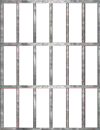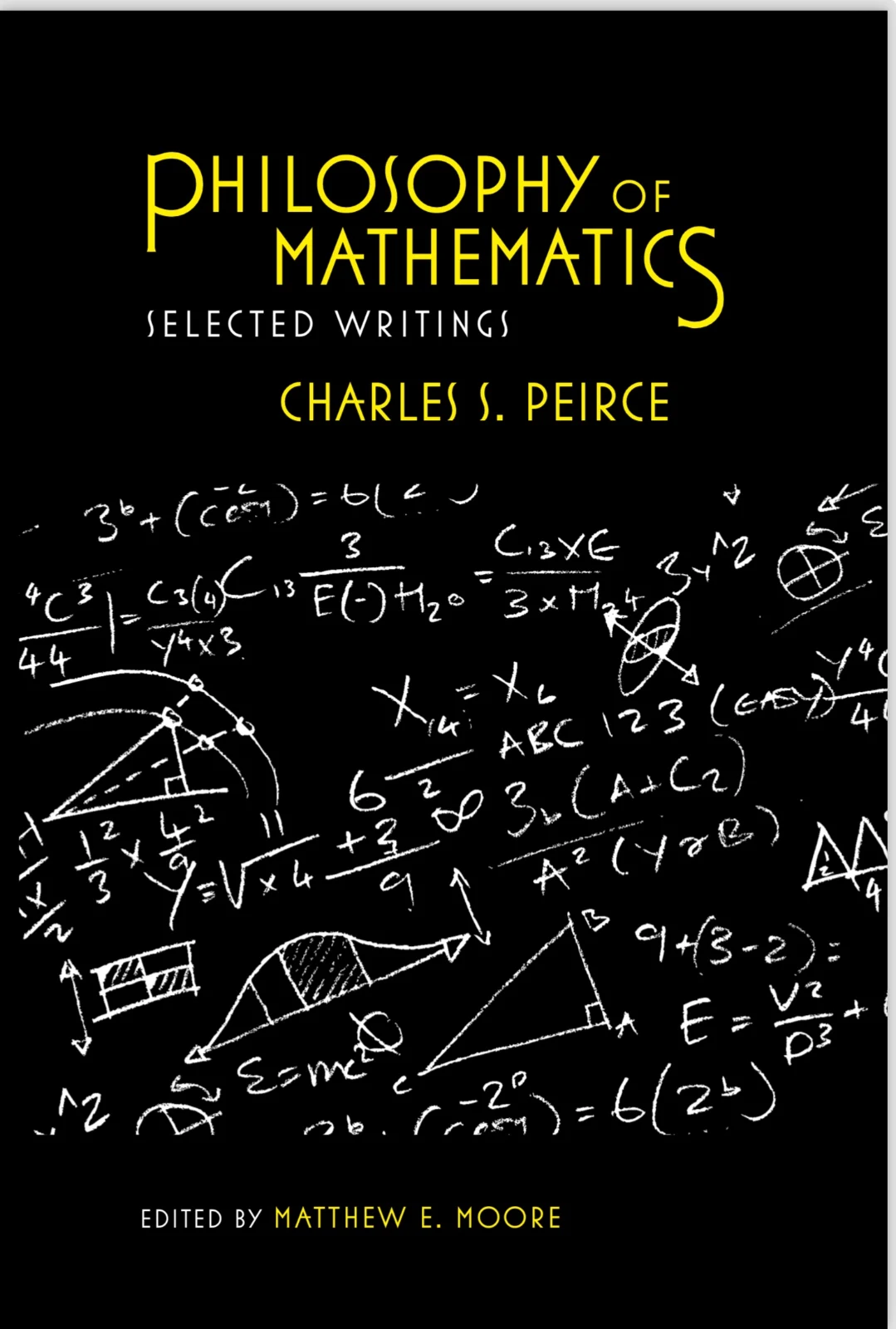Mathematics is the study of what is true of hypothetical states of things.
Plato, in the Sixth book of the Republic, holds that the essential characteristic of mathematics lies in the peculiar kind and degree of its abstraction, greater than that of physics but less than that of what we now call philosophy; and Aristotle follows his master in this definition. It has ever since been the habit of metaphysicians to extol their own reasonings and conclusions as vastly more abstract and scientific than those of mathematics. It certainly would seem that problems about God, Freedom, and Immortality are more exalted than, for example, the question how many hours, minutes, and seconds would elapse before two couriers travelling under assumed conditions will come together; although I do not know that this has been proved. But that the methods of thought of the metaphysicians are, as a matter of historical fact, in any aspect, not far inferior to those of mathematics is simply an infatuation, a lie.
For all modern mathematicians agree with Plato and Aristotle that mathematics deals exclusively with hypothetical states of things, and asserts no matter of fact whatever; and further, that it is thus alone where the necessity of its conclusions is to be explained.
Now a mathematician is a man whose services are called in when the physicist, or the engineer, or the underwriter, etc. finds himself confronted with an unusually complicated state of relations or wishes to know what relation of a given kind is involved. He states the case to the mathematician. The latter is not at all responsible for the truth of those premises: that he is to accept. The first task before him is to substitute for the intricate.
An imaginary state of things involving a comparatively orderly system of relations, which, while adhering as closely as possible or desirable to the given premises, shall be within his powers as a mathematician to deal with. This he terms his hypothesis. That work done, he proceeds to show that the relations explicitly affirmed in the hypothesis involve, as a part of any imaginary state of things in which they are embodied, certain other relations not explicitly stated.
Thus, the mathematician is not concerned with real truth, but only studies the substance of hypotheses. This distinguishes his science from every other. Logic and metaphysics make no special observations; but they rest upon observations which have been made by common men. Metaphysics rests upon observations of real objects, while logic rests upon observations of real facts about mental products, such as that, not merely according to some arbitrary hypothesis, but in every possible case, every proposition has a denial.
All these are results of common observation, though they are put into scientific and uncommon groupings. But the mathematician observes nothing but the diagrams he himself constructs.
Thus, the distinguishing characteristic of mathematics is that it is the scientific study of hypotheses which it first frames and then traces to their consequences.
Applied mathematics treats of hypotheses in the forms in which they are first suggested by experience, involving more or less of features which have no bearing upon the forms of deduction of consequences from them. Pure mathematics is the result of afterthought by which these irrelevant features are eliminated.
It cannot be said that all framing of hypotheses is mathematics. For that would not distinguish between the mathematician and the poet. But the mathematician is only interested in hypotheses for the forms of inference from them. As for the poet, although much of the interest of a romance lies in tracing out consequences, yet these consequences themselves are more interesting in point of view of the resulting situations than in the way in which they are deducible. Thus, the poetical interest of a mental creation is in the creation itself. But a hypothesis, in so far as it is mathematical, is mere matter for deductive reasoning.
On the other hand, it is an error to make mathematics consist exclusively in the tracing out of necessary consequences. For the framing of the hypothesis of the two-way spread of imaginary quantity, and the hypothesis of Riemann surfaces were certainly mathematical achievements. Mathematics is, therefore, the study of the substance of hypotheses, or mental creations, with a view to the drawing of necessary conclusions.
Aristotle was led into error by his own general philosophy. He makes, too, the serious mistake of supposing metaphysics to be more abstract than mathematics. In that he was wrong, since the former aims at the truth about the real world, which the latter disregards.
De Morgan and Sir William Rowan Hamilton, influenced indirectly, as it would seem, by Kantianism, defined mathematics as the science of Time and Space, algebra being supposed to deal with Time as geometry does with Space.
1st, this definition makes mathematics a positive science, inquiring into matters of fact. For, even if Time and Space are of subjective origin, they are nevertheless objects of which one statement or proposition is true and another false.
For example the science of space is no more a branch of mathematics than is optics. That is to say, just as there are mathematical branches of optics, of which projective geometry is one, but yet optics as a whole is not mathematics, because it is in part an investigation into objective truth. That is to say it cannot be stripped away to make way for hypotheses and build with just reasoning from there on. Physicists are constrained by the objective truth, mathematicians are not.
2nd, this definition erroneously identifies algebra with the science of Time. For it is an essential character of time that its flow takes place in one sense and not in the reverse sense; while the two directions of real quantity are as precisely alike as the two directions along a line in space.
3rd, this definition leaves no room for some of the chief branches of mathematics, such as the doctrine of N-dimensional space, the theory of imaginaries, the calculus of logic, including probabilities, separate from algebra and geometry.
Logic is the science which examines signs, ascertains what is essential to being signs and describes their fundamentally different varieties. In metaphysics, no skill in reasoning can avail, unless that reasoning is based upon the exact generalizations of the logician as premises; and this may truly be said to be an application of logic. But in framing mathematical hypotheses no logic is required.
The framing of a mathematical hypothesis does not, therefore, come within the province of the logician.
It may be objected to the definition of art. That it places mathematics above logic as a more abstract science while on the contrary logic is requisite for the business of drawing necessary conclusions. An application [of] logical theory is only required by way of exception in reasoning, and not at all in mathematical deduction.
We often hear men appeal to the “burden of proof” and other supposed logical principles; and in meta- physics logical theory is the only guide. But reasonings of mathematics such appeals are altogether unnecessary. Many teachers of geometry think that it is desirable that a course in logic should precede the study of the elements. But the reasoning of the elements of geometry is often bad, owing to the fact that the hypothesis is not fully stated.
Mistakes in mathematics occur not infrequently, and not being detected give rise to false doctrine, a mistake in the evaluation of a definite integral by Laplace, in his Mécanique céleste, led to an erroneous doctrine about the motion of the moon which remained undetected for nearly half a century. But after the question had once been raised, all dispute was brought to a close within a year.
Incessant disputations have, indeed, been kept up by a horde of undisciplined minds, but the disputants are one and all men who cannot discuss any mathematical problem without betraying their want of mathematical power and their gross ignorance of mathematics at every step.
But there has never been a single prolonged dispute.
It does not seem worth while to run through the history of science for the sake of the easy demonstration that there is no other extensive branch of knowledge of which the same can be said.
Nor is the reason for this immunity of mathematics far to seek. It arises from the fact that the objects which the mathematician observes and to which his conclusions relate are objects of his mind's own creation. Hence, although his proceeding is not infallible, yet it is so easy to repeat the inductions upon new instances, which can be created at pleasure, that when attention has once been directed to a process of reasoning suspected of being faulty, it is soon put beyond all dispute either as correct or as incorrect.
Hence, considering the immense amount of disputation there has always been concerning the doctrines of logic, and especially concerning those accuracy of reasonings in metaphysics, safest way is to appeal for our logical principles to the science of mathematics, where error can only long go unexploded on condition of its not being suspected.
Mathematics is the most abstract of all the sciences. For it makes no external observations, nor asserts anything as a real fact. When the mathematician deals with facts, they become for him mere “hypotheses”; for with their truth he refuses to concern himself. The whole science of mathematics is a science of hypotheses; so that nothing could be more completely abstracted from concrete reality. Philosophy is not quite so abstract.
It confines itself, however, to the universal phenomena of experience; and these are, generally speaking, sufficiently revealed in the ordinary observations of every-day life. I would even grant that philosophy, in the strictest sense, confines itself to such observations as must be open to every intelligence which can learn from experience.
Mathematics is not a positive science; for the mathematician holds him- self free to say that A is B or that A is not B, the only obligation upon him being, that as long as he says A is B, he is to hold to it, consistently. But logic begins to be a positive science; since there are some things in regard to which the logician is not free to suppose that they are or are not; but acknowledges a compulsion upon him to assert the one and deny the other.
All features that have no bearing upon the relations of the premises to the conclusion are effaced and obliterated. The skeletonization or diagrammatization of the problem serves more purposes than one; but its principal purpose is to strip the significant relations of all disguise. Only one kind of concrete clothing is permitted— namely, such as, whether from habit or from the constitution of the mind, has become so familiar that it decidedly aids in tracing the consequences of the hypothesis.
This the mathematician does without inquiring or caring whether it agrees with the actual facts or not; and, secondly, he proceeds to draw necessary consequences from that hypothesis.
The true difference between the necessary logic of philosophy and mathematics is merely one of degree. It is that, in mathematics, the reasoning is frightfully intricate, while the elementary conceptions are of the last degree of familiarity; in contrast to philosophy, where the reasonings are as simple as they can be, while the elementary conceptions are abstruse and hard to get clearly apprehended.
Mathematics studies nothing but pure hypotheses, and is the only science which never inquires what the actual facts are; while philosophy, although it uses no microscopes or other apparatus of special observation, is really an experimental science, resting on that experience which is common to us all; and this is why the mathematician holds the reasoning of the metaphysician in supreme contempt.
It does not seem to me that mathematics depends in any way upon logic. It reasons, of course. But if the mathematician ever hesitates or errs in his reasoning, logic cannot come to his aid. He would be far more liable to commit similar as well as other errors there. On the contrary, logic cannot possibly attain the solution of its problems without great use of mathematics. Indeed all formal logic is merely mathematics applied to logic.
Those propositions which can be deduced from others by reasoning of the kind that the philosophers extol are set down by mathematicians as “corollaries”. That is to say, they are like those geometrical truths which Euclid did not deem worthy of particular mention, and which his editors inserted with a garland, or corolla, against each in the margin.
In the theorems, or at least in all the major theorems, a different kind of reasoning is demanded. Here, it will not do to confine oneself to general terms. It is necessary to set down, or to imagine, some individual and definite schema. Like in algebra an array of letters of which some are repeated. This schema is constructed so as to conform to a hypothesis set forth in general terms in the thesis of the theorem. Pains are taken so to construct it that there would be something closely similar in every possible state of things to which the hypothetical description in the thesis would be applicable.
How it can be that, although the reasoning is based upon the study of an individual schema, it is nevertheless necessary, that is, applicable to all possible cases, is one of the questions we shall have to consider.
Thinking in general terms is not enough. It is necessary that something should be DONE. In geometry, subsidiary lines are drawn. In algebra permissible transformations are made. Thereupon, the faculty of observation is called into play. Some relation between the parts of the schema is remarked. But would this relation subsist in every possible case? Mere corollarial reasoning will sometimes assure us of this. But, generally speaking, it may be necessary to draw dis- tinct schemata to represent alternative possibilities. Theorematic reasoning invariably depends upon experimentation with individual schemata.
Accordingly, we may say that corollarial, or “philosophical,” reasoning is reasoning with words; while theorematic, or mathematical reasoning proper, is reasoning with specially constructed schemata.
Another characteristic of mathematical thought is that it can have no success where it cannot generalize. One cannot, for example, deny that chess is mathematics, after a fashion; but, the single steps of king, knight, and pawn; the finite number of squares; the peculiar mode of capture by pawns; the queening of pawns; castling; there results a mathematics whose wings are effectually clipped, and which can only run along the ground. Hence it is that a mathematician often finds what a chess-player might call a gambit to his advantage; exchanging a smaller problem that involves exceptions for a larger one free from them.
Among the minor, yet striking characteristics of mathematics, may be mentioned the fleshless and skeletal build of its propositions; the peculiar difficulty, complication, and stress of its reasonings; the perfect exactitude of its results. It is easy to speak with precision upon a general theme. Only, one must commonly surrender all ambition to be certain. It is equally easy to be certain. One has only to be sufficiently vague.
But to reunite, like mathematics, perfect exactitude, and practical infallibility, with unrestricted universality is remarkable. But it is not hard to see that all these characters of mathematics are inevitable consequences of its being the study of hypothetical truth.
It is difficult to decide between the two definitions of mathematics, the one by its method, that of drawing necessary conclusions, the other by its aim and subject matter, as the study of hypothetical states of things. The former makes, or seems to make, the deduction of the consequences of hypotheses the sole business of the mathematician, as such. But it cannot be denied that immense genius has been exercized in the mere framing of such general hypotheses as the field of imaginary quantity and the allied idea of Riemann's surface demonstrates. Even the framing almost always calls for good judgment and knowledge, sometimes for great intellectual power, as in the case of Boole's logical algebra. Shall we exclude this work from the domain of mathematics?
The logician does not care particularly about this or that hypothesis or its consequences, except so far as these things may throw a light upon the nature of reasoning. The mathematician is intensely interested in efficient methods of reasoning, with a view to their possible extension to new problems; but he does not, quâ mathematician, trouble himself minutely to dissect those parts of this method whose correctness is a matter of course.
One studies the science of drawing conclusions, the other the science which draws necessary conclusions.
Logic has to define its aim; and in doing so is even more dependent upon ethics, or the philosophy of aims, by far, than it is, in the methodeutic branch, upon mathematics. We shall soon come to understand how a student of ethics might well be tempted.
There are two characters of mathematics which have not yet been mentioned, because they are not exclusive characteristics of it. One of these, which need not detain us, is that mathematics is distinguished from all other sciences except only ethics, in standing in no need of ethics.
The other character,—and of particular interest it is to us just now,—is that mathematics, along with ethics and logic alone of the sciences, has no need of any appeal to logic.
Just as it is not necessary, in order to talk, to understand the theory of the formation of vowel sounds, so it is not necessary, in order to reason, to be in possession of the theory of reasoning. Otherwise, plainly, the science of logic could never be developed.
A prominent example of note is that in order to obtain a wireless transatlantic telegraph, men should be born. That is to say, it is bound to come sooner or later. But that does not make research into the nature of electricity needless for gaining such a telegraph. So likewise if the study of electricity had been pursued resolutely, even if no special attention had ever been paid to mathematics, the requisite mathematical ideas would surely have been evolved. Faraday, indeed, did evolve them without any acquaintance with mathematics. Still, it would be far more economical to postpone electrical researches, to study mathematics by itself, and then to apply it to electricity, which was Maxwell's way. In this same manner, the various logical difficulties which arise in the course of every science except mathematics, ethics, and logic, will, no doubt, get worked out after a time, even though no special study of logic be made. But it would be far more economical to make first a systematic study of logic. If anybody should ask what are these logical difficulties which arise in all the sciences, he must have read the history of science very irreflectively.
End of Chapter 4, Page 80.
Part 2, sometimes next week
!bookworms !math !r-slurs !classics
@neoconshill please pin











Jump in the discussion.
No email address required.
I don't understand how theory vs empiricism is even a real argument. You can't have one without the other r-slurs
Jump in the discussion.
No email address required.
This is the definition of empiricism on Google. Idk if thats how people use it in a colloquial sense but if so that's absolute childish nonsense. No different than saying "If I don't see it I don't believe it."
Of course there is a huge amount of reality that is not perceptible to any Human senses. We only perceive with our senses a small portion of all phenomenon.
Jump in the discussion.
No email address required.
But our senses can perceive cowtools which can tell us more about the world.
Jump in the discussion.
No email address required.
Does love exist? Does justice exist?
exist?
Can you measure love? Can you hold justice? Can you physically see an integral? Can you hold a derivative
Empiricism is only applicable to a very narrow range of subjects within the physical sciences.
Jump in the discussion.
No email address required.
You get the sensation of love and justice you r-slur.
I love ants more than centipedes.
You are arguing 1st year intro to philosophy tier arguments.
Jump in the discussion.
No email address required.
Empiricism is useful in its niche but utilizing as the only valid way to view things is r-slurred.
way to view things is r-slurred.
Same as any philosophy viewing thing from only one philosophical perspective is r-slurred. You have to be situational and apply things as needed.
viewing thing from only one philosophical perspective is r-slurred. You have to be situational and apply things as needed.
Skepticism is useful but taking it to its logical conclusion is paranoia.
conclusion is paranoia.
Rationalism to its extreme creates self reflective idiots who don't look outward to the reality of the world
creates self reflective idiots who don't look outward to the reality of the world  around them.
around them.
Utilize philosophical perspectives as cowtools and utilize them as needed. There's no one tool that fits all situations
Jump in the discussion.
No email address required.
i know.
I just like being dramatic.
But the whole jumping from what if there are things we cannot measure to there is a bearded uncle in the sky who watched me 24/7 across the planet and no its true because you cannot disprove it is r-slurred.
Jump in the discussion.
No email address required.
If your arguement is as simple as that for the existence of god then sure I'd agree
as that for the existence of god then sure I'd agree  with you. That said I think
with you. That said I think  it is a gross
it is a gross  simplification and condescension of what many great
simplification and condescension of what many great  thinkers, scientists, philosophers, and theologians have argued for and against for millennia.
thinkers, scientists, philosophers, and theologians have argued for and against for millennia.
Jump in the discussion.
No email address required.
They have all argued for what they wanted to be true. In that all of them are equal.
Jump in the discussion.
No email address required.
More options
Context
More options
Context
More options
Context
More options
Context
More options
Context
Jump in the discussion.
No email address required.
Jump in the discussion.
No email address required.
More options
Context
More options
Context
More options
Context
More options
Context
More options
Context
Oh you are so wrong. There was this German school of thought in the very late 1800s who believed that if they gathered enough data, they'd see the patterns emerge which would help build their theory. I think they were called the Historical School or the German School of Historic Thought. It's been awhile. Basically, the theory would magically appear with enough data gathering and pattern noticing.* *(yes, it's a great of example of putting the cart before the horse).
Basically, the theory would magically appear with enough data gathering and pattern noticing.* *(yes, it's a great of example of putting the cart before the horse).
Anyway, Mises von Ludwig, one of the early founders of Austrian Economics and an avid yet logical hater of socialists (!anticommunists ) got into a spat with them. Basically, theory guides the kind of data you gather and which kind you neglect. You can't have a theory of everything with the social sciences because people aren't as predictable and consistent as celestial bodies and the laws of physics. Otherwise, you're left with a giant mound of shit, and if you're arbitrary enough, you can confirm anything you already believed (postmodernism suffers this fate). All you can do is make simplifying assumptions, observe how the data conforms with such predictions, and either "fail to disconfirm" your hypothesis, or you find contradictory evidence, whereupon you wonder about which general assumption was wrong, if the theory completely needs rework, or if it's a fluke.
) got into a spat with them. Basically, theory guides the kind of data you gather and which kind you neglect. You can't have a theory of everything with the social sciences because people aren't as predictable and consistent as celestial bodies and the laws of physics. Otherwise, you're left with a giant mound of shit, and if you're arbitrary enough, you can confirm anything you already believed (postmodernism suffers this fate). All you can do is make simplifying assumptions, observe how the data conforms with such predictions, and either "fail to disconfirm" your hypothesis, or you find contradictory evidence, whereupon you wonder about which general assumption was wrong, if the theory completely needs rework, or if it's a fluke.
Ah, the joys of social science!
!nooticers, a very basic intro to theory of science.
Jump in the discussion.
No email address required.
Bro really said
Jump in the discussion.
No email address required.
Yeah, it did seem wrong, but I kept going. 14 hours of work and some beer do wonders.
Jump in the discussion.
No email address required.
More options
Context
More options
Context
Didn't read upmarseyed
Jump in the discussion.
No email address required.
More options
Context
Huh I guess if you had infinity time and infinity resources, you could empiricize anything with 100% precision.
Jump in the discussion.
No email address required.
Heisenberg uncertainty mtfk be happy with your 99.9999999999999999999999999999999999999999999999999999999999999999999999999999978%
Jump in the discussion.
No email address required.
Sorry but by merely looking at the letters you wrote, I cannot accurately comprehend the sentence itself.
Jump in the discussion.
No email address required.
More options
Context
More options
Context
More options
Context
More options
Context
It's the difference between describing the behavior of gases through a function without units (empirical), versus an equation that shows the relationship between Pressure, Volume, mols, and Temperature (theory).
!ifrickinglovescience !physics !chemistry
Jump in the discussion.
No email address required.
the Equationcel fears the Monte Carlo Chad.
Jump in the discussion.
No email address required.
The Monte Carlo Chad fears the laboratory
Jump in the discussion.
No email address required.
More options
Context
More options
Context
More options
Context
An empirical sense of "is", in terms of what's given through perception, or in terms of facts about contingent order of a state of affairs, is not the same sense of "is" in terms of idealist conceptions of being.
Jump in the discussion.
No email address required.
How would you even separate the two
Jump in the discussion.
No email address required.
Empirically, you have evidence to support an interpretation, and you accept an answer as “good enough” if no evidences disprove it. Over time the scope of possible “good enough”s gets more and more narrow.
Rationally, you have proofs, that if you accept the pre-agreed starting points, then some consequent must follow. “If you accept A, then you must accept B”. Those preconditions are themselves consequences of a few axioms that are usually so obvious that nobody would object, like “two sets that both have exactly the same objects are equal sets”, at least in ZF set theory
Jump in the discussion.
No email address required.
More options
Context
More options
Context
So a trans woman is a man.
Jump in the discussion.
No email address required.
More options
Context
More options
Context
Historically empiricism came first then followed by theoretical descriptions of physical phenomena. Dismissing theoretical framework is ridiculous though, no reason for slapfights.
Jump in the discussion.
No email address required.
I dismiss theoretical frameworks.
Jump in the discussion.
No email address required.
More options
Context
Jump in the discussion.
No email address required.
More options
Context
More options
Context
More options
Context